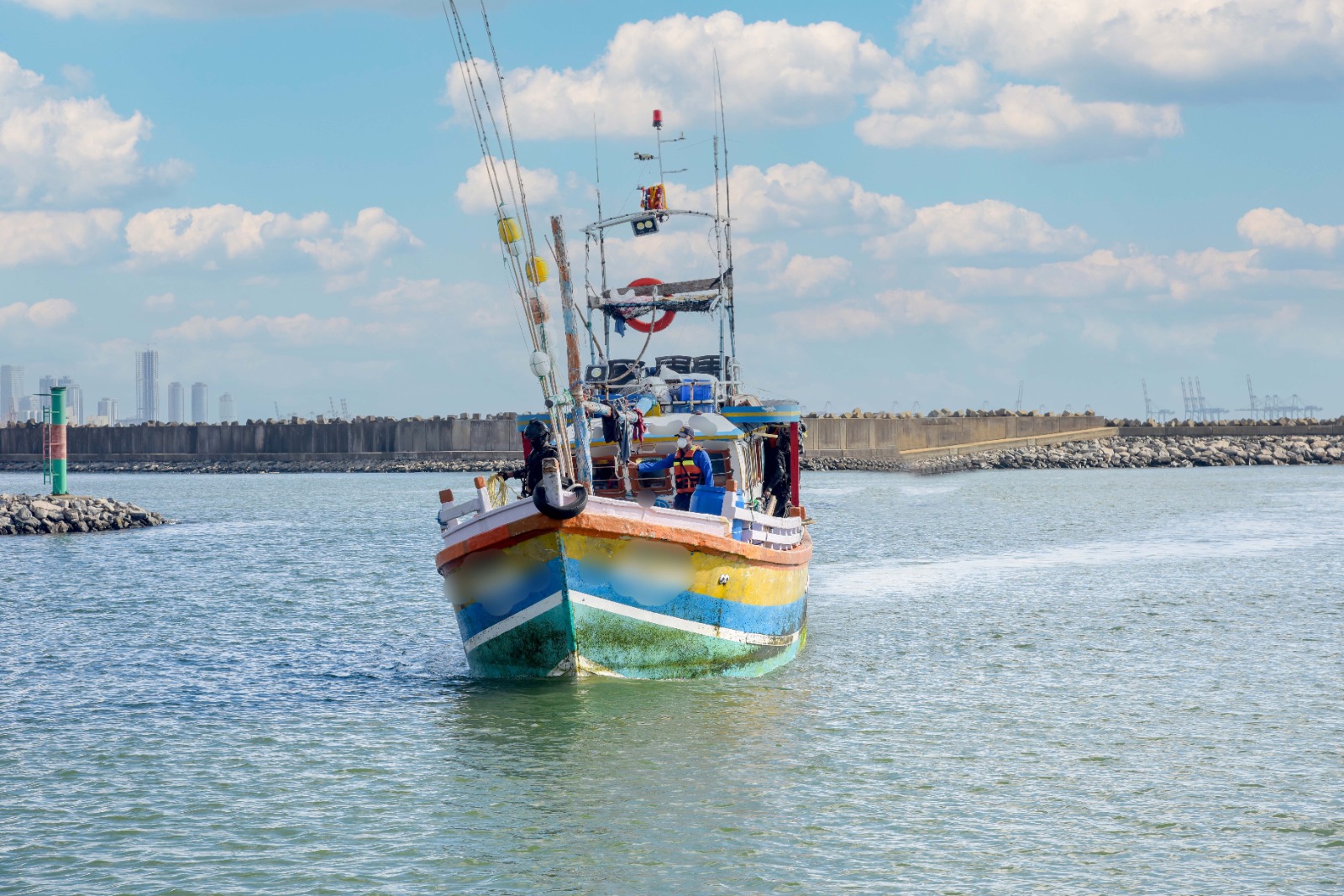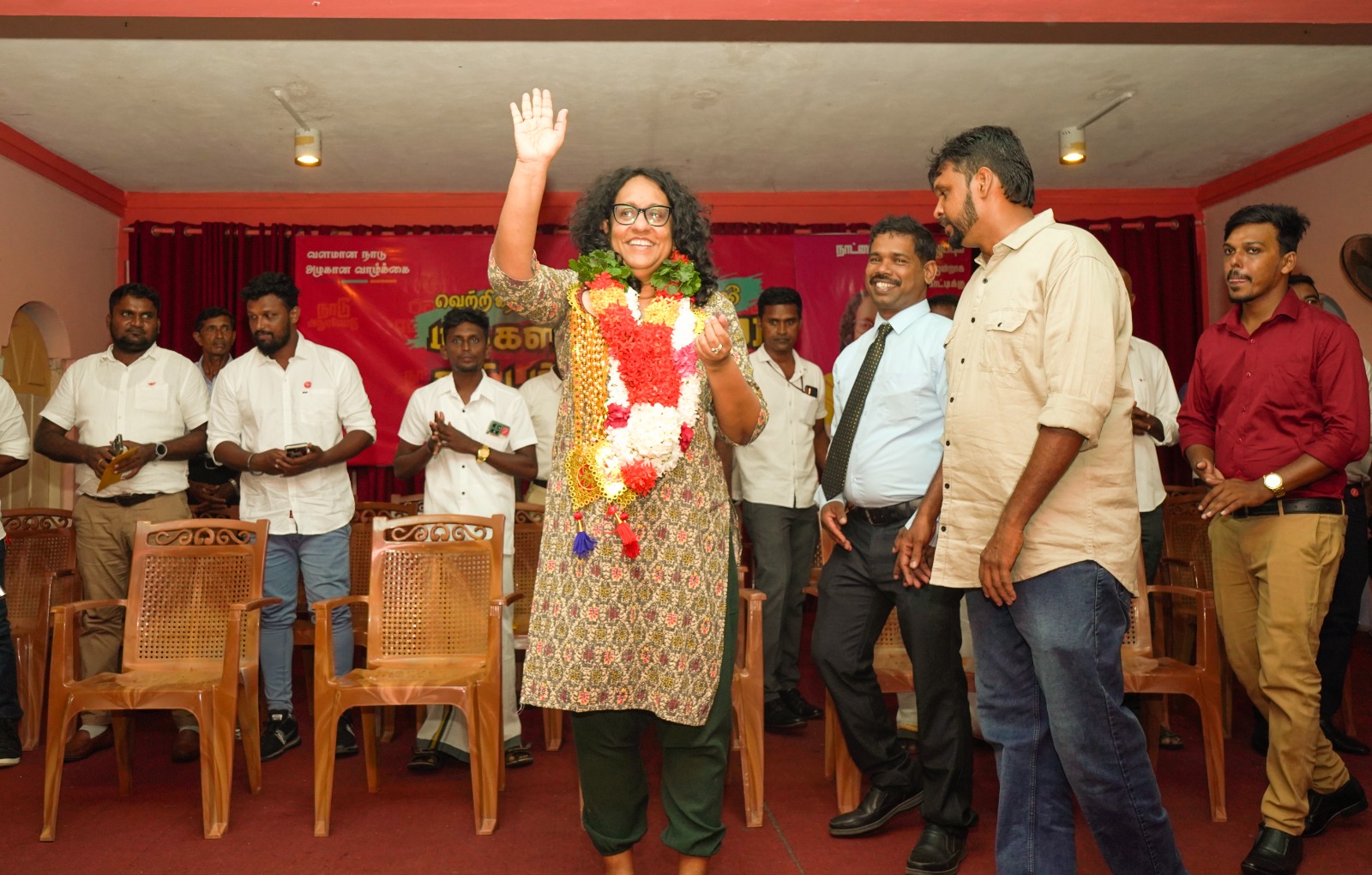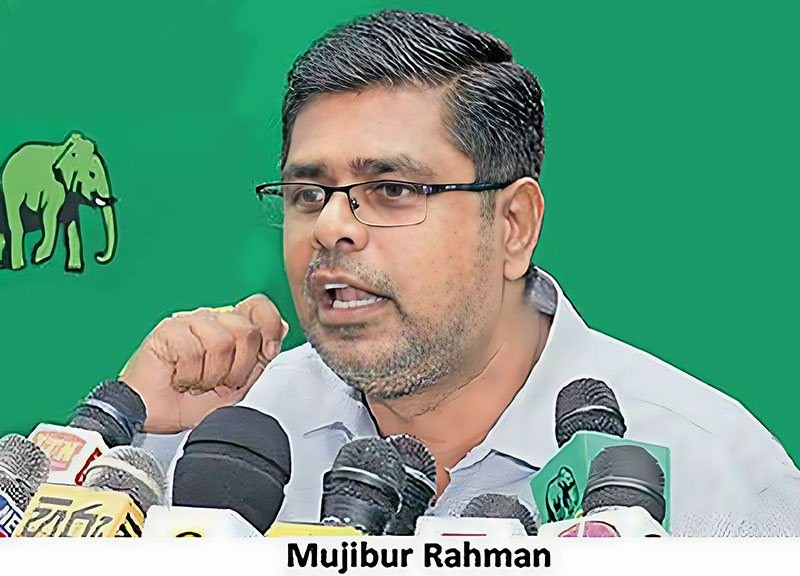News
Empowering youth a human right and investment – UNDP Rep in SL

Robert Juhkam, Resident Representative, UNDP in Sri Lanka
The National Youth Dialogue (NYD) on Leadership, Innovation and Entrepreneurship is an annual national youth engagement exercise led by the United Nations Development Programme (UNDP) in Sri Lanka.
This year, too in adapting to the new normal, the National Youth Dialogue for 2020/2021 presented a fully virtual participant experience, via Zoom, spanning over five weeks, from Feb 16 to March 18 and included 28 sessions under 10 themes with over 100 speakers and facilitators joining in to share their stories, expertise and experiences with over 2000 participants, the UNDP said.
Together with Youth CO: Lab, the UNDP Asia Pacific programme on youth co-led by UNDP and Citi Foundation, NYD Sri Lanka is part of a family of National Youth Dialogues held each year in more than 20 countries across Asia and the Pacific region.
Speaking at the virtual closing ceremony, Robert Juhkam, Resident Representative, UNDP in Sri Lanka, stated, “Through existing and scaled up platforms for youth, such as the NYD and the HackaDev programme, UNDP Sri Lanka remains steadfast in our support to GoSL and other sectors to continue to build an alliance around youth development – create new partnerships and collaborations, and strengthen existing ones which will be the foundation upon which we can collectively invest our efforts and resources to provide an improved service offering. Empowering youth is both a human right based imperative and a needed investment to build forward better.”
The annual event serves as a national platform to foster meaningful youth participation and learning and engages a diverse group of young people across the island to set the agenda for youth policy action on the part of UNDP and its partners. The event also showcases the impact of UNDP Sri Lanka’s umbrella youth programme- HackaDev.
Speaking on her experiences as a participant this year, Zahra Taha noted, “This platform helped me identify the access points around me to new knowledge, resources, professional expertise support systems, new technologies and also awareness on crucial topics. I wish to highlight that the online experience that we gained through NYD was extraordinary. The interactive nature of the sessions using many online tools, kept the program lively and interesting.”
The event comprised thought and action provoking mini dialogues and innovative learning and development offerings, carefully curated for the benefit of youth.
Highlighting the Government’s role in engaging with youth, Theshara Jayasinghe, Chairman – National Youth Services Council, stated, “It is important to focus on how young people can come forward and lead, challenge existing notions and the status quo, and take risks in being innovative and entrepreneurial. This is why I am pleased that UNDPs National Youth Dialogue, not just in Sri Lanka, but across Asia and the Pacific region, through the Youth Co:Lab programme, has a heavy and consistent focus on these three key elements – leadership, innovation and entrepreneurship”.
The National Youth Dialogue tackled two main issues for young people; the post pandemic new normal and the decade of action towards realizing the sustainable development goals by the year 2030. Under this, a wide range of thematic areas covered during the dialogue included climate change, peace, gender, community engagement, personal development, arts and sports, digital citizenship, education, skills and employment opportunities.
Speaking of their role as an implementing partner of the project, Ravin Basnayake, Country Officer, Citi Sri Lanka Sri Lanka, noted, “We believe youth engagements such as the National Youth Dialogue helps in fostering learning and the development of future leaders, who can face the development challenges of today. This is why Citi Foundation together with UNDP created the Youth Co:Lab programme in the Asia and the Pacific Region and we are very happy about the impact of the programme thus far”.
Facilitators comprised of resource personnel from diverse fields including international athletes, global tech giants, private sector leaders, public officials, education reformists, media influencers and peacebuilders. The sessions were made possible through the efforts of over 25 partner and collaborator organizations, including six UN agencies.
Addressing the gathering Eric Falt, Director and UNESCO Representative to Bhutan, India, Maldives and Sri Lanka stated, “As countries around the world consider their post COVID-19 policy options, through your leadership, innovative ideas, and entrepreneurial spirit, we need you to step up and re-engineer the post COVID world to make it more peaceful, just and where no one hopefully is left behind.”
The National Dialogue in Sri Lanka was convened in partnership with Biodiversity Sri Lanka, Information and Communication Technology Agency of Sri Lanka (ICTA), Asia-Pacific Centre of Education for International Understanding (APCEIU), Vocational Training Authority (VTA) of Sri Lanka, Citi, Cisco, Centre for Communication Training, WHO Sri Lanka, UNESCO New Delhi Cluster Office, UNICEF Sri Lanka, UNFPA Sri Lanka, UNV Sri Lanka, HackaDev, Hashtag Generation, neOOne Associates, Sri Lanka Association for Software Services Companies (SLASSCOM), Citra Social Innovation Lab and Facebook.
Latest News
PNB detect large haul of methamphetamine and heroin in local fishing trawler intercepted by Navy

Acting on credible information, the Sri Lanka Navy launched a special operation on the high seas on 11 Apr 25, resulting in the apprehension of 06 suspects along with a local multi-day fishing trawler, believed to be involved in smuggling of narcotics.
Subsequently, the intercepted trawler was brought to the Dikkowita Harbour, where a thorough inspection was carried out with the assistance of the Police Narcotic Bureau (PNB) experts, leading to the detection of approximately 77kg and 484g of heroin and 42kg and 334g of methamphetamine (Ice).
The consignment, which had been meticulously hidden in the trawler, was handed over to the PNB for onward legal action on 12 Apr.
News
Government to initiate new projects to help rural communities to strengthen the national economy – Prime Minister

Prime Minister Dr. Harini Amarasuriya stated that the government is currently working to initiate new projects across every area of Sri Lanka and to bring the necessary investments to rural areas in order to improve the participation of the communities in strengthening the national economy.
The Prime Minister made these remarks while addressing a public gathering held on Saturday (12th) in Nanattan, Mannar.
Prime Minister further stated:
“Our country has reached a decisive point. The government of the National People’s Power (NPP) understands the expectations of the people. The general public came together despite the ethnic and religious barriers to exercise their voting right against corruption in politics that existed in this country. Consequently, Anura Kumara Dissanayake was able to become the President in 2024. A month later, we formed a Parliament that will initiate in changing the history. Today, we have a government made up of 159 members. There is now a strong group in Parliament standing against corruption and a government that represents all ethnicities, religions, and regions. For the first time in history, we have formed a government made by a single party that represents everyone. The people are the ones who made this victory possible and they are the true victors in this cause.
We are committed to protecting the trust the people have placed in us and to fulfill their expectations.
You are well aware of how weak the economy was when we came to power. Officially, we had been declared a bankrupt nation before the world. For many years, Sri Lanka had no economic growth and was in a debt-ridden economy. The tourism sector had collapsed. Due to the corruption in political authority, investors were unwilling to invest the country. Today, we have changed all that. We have managed to steer the economy towards growth leading to investments being restored while the confidence in Sri Lanka is increasing internationally.
We are working to start new projects in every area of Sri Lanka to bring the necessary investments to the rural sector, with the aim of improving the participation of rural communities in the national economy.
The first budget of the NPP government has passed. Even though the economy is not yet strong, we focused on two main priorities in the budget: one was to develop infrastructure necessary for economic growth, and the other was to provide relief to people burdened by economic hardships. That’s why we have increased and extended the period of Aswesuma benefits. Further, vouchers to buy schoolbooks was distributed at schools with less than 300 students.
Previous governments were a burden to the people. But today, we have a very small Cabinet of Ministers. The government is no longer a burden to the people. We have reduced expenses, minimized losses, and eliminated corruption.
Because the government is not a burden to the people, it was able to provide relief to the people. Through this budget, the basic salaries of the public service has been increased. They have been given the opportunity to work freely. Decisions are now made on statistical data and not based on political preferences. What we expect is an independent public service. We are in need of a people-centered government as well as a public service which should be an efficient, corruption-free and people-sensitive. We have already created the necessary environment for that.
In order to develop the rural economy, the government has allocated a large amount of funding through this year’s budget. But, to ensure that these allocations are used properly to serve the people, the local government institutions need to be cleaned up. If the leaders who represents the villages are corrupt, the funds allocated will become worthless. That is why the upcoming local government elections has become extremely significant and decisive.”
The event was attended by the Members of Parliament Jegadeeswaran and S .Thilakanadan, public representatives, and candidates of local government election representing the NPP.
[Prime Minister’s Media Division]
News
Batalanda: Why only now and what about the others, asks Mujibur

SJB Colombo District MP Mujibur Rahuman launched a fierce critique of the political hypocrisy surrounding the Batalanda Commission report during Thursday’s (10) parliamentary session.
Rahuman pointed to the violent actions of the JVP, which had devastating effects on politicians, police officers, and civilians, as detailed in the Commission’s final report.
He said that the violence had disrupted vital services and created a state of lawlessness, severely affecting the public.
The MP accused political opponents of exploiting the Batalanda issue for electoral advantage, noting that for 36 years, no proposals were made to investigate the assassination of JVP leader Rohana Wijeweera.
He criticized the JVP for forming “probationary” governments with Chandrika Kumaratunga and backing Ranil Wickremesinghe in the yahapalana effort, yet failing to address the Batalanda issue during their tenures.
Rahuman also questioned the current attacks on Wickremesinghe, highlighting that many of his critics had previously collaborated with him. He called attention to the JVP’s statements regarding Gotabaya Rajapaksa’s alleged involvement in a Matale mass grave and the distribution of pamphlets on the subject during the 2022 Galle Face protests.
The MP called for accountability, questioning why no proposals were put forward on these issues when the current government came into power. He also criticized the NPP for its leaders, who, despite being involved in suppressions during the 80s and 90s, now sought positions within the government. Rahuman accused them of hypocrisy, warning against dragging the Batalanda issue into the ongoing election.Rahuman said that the historical wrongs committed by JVP political leaders cannot be erased, regardless of attempts to downplay them.
-

 Business6 days ago
Business6 days agoColombo Coffee wins coveted management awards
-

 News1 day ago
News1 day agoSuspect injured in police shooting hospitalised
-

 Features2 days ago
Features2 days agoRobbers and Wreckers
-

 Features4 days ago
Features4 days agoSri Lanka’s Foreign Policy amid Geopolitical Transformations: 1990-2024 – Part III
-

 Midweek Review4 days ago
Midweek Review4 days agoInequality is killing the Middle Class
-

 Features6 days ago
Features6 days agoSri Lanka’s Foreign Policy amid Geopolitical Transformations: 1990-2024 – Part I
-

 Business1 day ago
Business1 day agoSanjiv Hulugalle appointed CEO and General Manager of Cinnamon Life at City of Dreams Sri Lanka
-

 Features5 days ago
Features5 days agoA brighter future …












